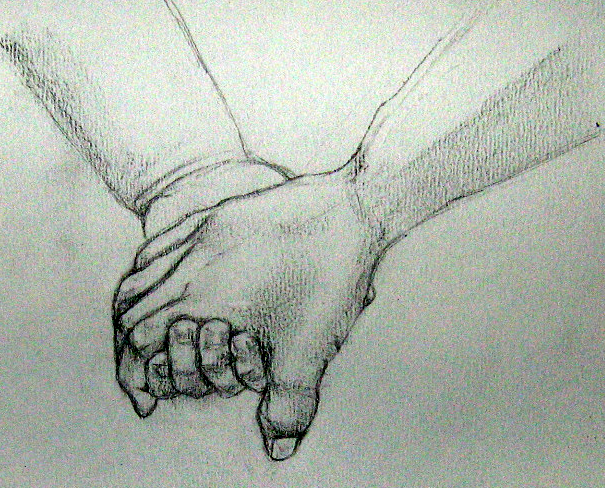By Julia Travers

A friend shared a beautiful story of interbeing in this Facebook post:
An anthropologist proposed a game to the kids in an African tribe. He put a basket full of fruit near a tree and told the kids that whoever got there first won the sweet fruits. When he told them to run, they all took each other’s hands and ran together,
By Julia Travers

A friend shared a beautiful story of interbeing in this Facebook post:
An anthropologist proposed a game to the kids in an African tribe. He put a basket full of fruit near a tree and told the kids that whoever got there first won the sweet fruits. When he told them to run, they all took each other’s hands and ran together, then sat together enjoying their treats. When he asked them why they had run like that, as one could have had all the fruits for himself, they said, “Ubuntu.” (“How can one of us be happy if all the other ones are sad?”) “Ubuntu” in the Xhosa culture means “I am because we are.”
Activist and politician Nelson Mandela described ubuntu as “the profound sense that we are human only through the humanity of others; if we are to accomplish anything in this world, it will in equal measure be due to the work and achievements of others.” 1
As a preschool teacher, I worked in a small classroom, and the children and I got to know each other very well. I was lucky enough to see young children embody interbeing, ubuntu, and love. For example, if one child was sad, the others would often go to the child and offer their stuffed animals and toys to hold, without a word being said. Sometimes the upset child was not ready to receive this comfort, and I would tell those offering that the sad child wanted to be alone for a bit; they had been very kind to offer and could try again later. This usually worked. Often the upset child would break into a grin or at least take the stuffed animal and hug it firmly, looking very satisfied. It was very inspiring to see young people who had only been on the Earth three or four years act in this way.
We talked about loving each other and being friends in our class, and one of our favorite books was Fill a Bucket: A Guide to Daily Happiness for Young Children by Carol McCloud. The premise of this book is that everyone has an invisible bucket, and it can be filled each day by acts of giving or receiving love. Children loved to list how they filled the buckets of their grandmas by hugging them, or of their dogs by petting them. I loved my little “bucket fillers.”
Every time someone is kind to another, is forgiving, or is even courteous, I feel that is a recognition, be it conscious or not, of interbeing. Imperfect as we may be, we have an innate awareness of our connectivity and we try as best we can to not harm ourselves or others. Very few of us become so detached and harmed that we completely disconnect from all of life. Those who do often leave the rest of us with a great feeling of sadness, a sense that things are not right. In these cases, great healing and care are needed, because in suffering we are all connected, too.
Many of us may enjoy being alone at times, and may even become frightened of others, struggling with our relationships to people, organizations, and even Mother Earth. Nevertheless, interbeing and interconnectedness follow us everywhere we go, and we see them in all that we do. Children also may struggle to get along, but they can be excellent guides in the ways of love, interbeing, and forgiveness. Most children are ready to start over in the moment and play a new game with their friends. Thich Nhat Hanh wrote in The World We Have: A Buddhist Approach to Peace and Ecology, “it’s not possible to take the sun out of the flower.” It is also impossible to take any one person away from another. As the earthly and universal ecosystems live in this moment, so we all live in this moment. We live, we die, we breathe, we look, and we feel, together.
1 Small Business Trends. “Ubuntu: An Inspiring Story About an African Tradition of Teamwork and Collaboration,” Business Insider, Inc., April 3, 2011. Retrieved from: http://www.businessinsider.com/ubuntu-an-inspiring-story-about-an-african-tradition-of-teamwork-and-collaboration-2011-4.

Julia Travers is a writer, teacher, meditator, and artist in Virginia. Her writing and artwork can be found on juliatravers.wordpress.org.

